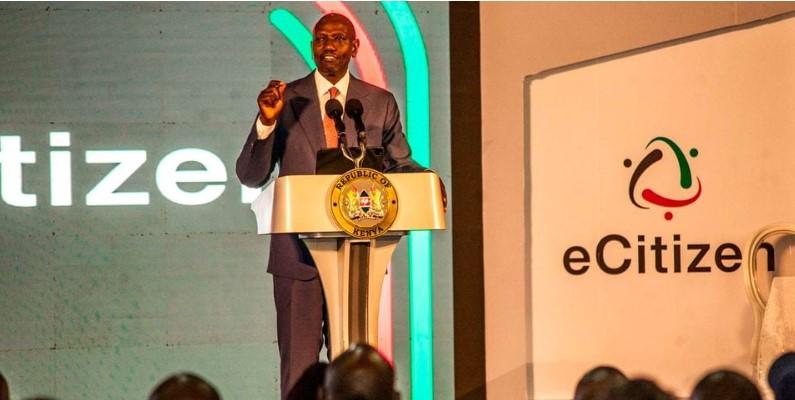Ruto’s eCitizen Directive Under Scrutiny Over 4 Hurdles – Report
Auditor General Nancy Gathungu has identified shortcomings in President William Ruto’s initiative to digitalize all government services and consolidate them on the eCitizen platform.
In the Auditor General’s report for the 2022/2023 fiscal year regarding the National Government, it was outlined that these deficiencies could impede the provision of services and put the government’s data at risk.
Gathungu additionally disclosed that their department was undertaking a specific audit of the eCitizen platform to offer insights into its trustworthiness and dependability.
ALSO READ:
- Adidas vs Puma Feud to Become a TV Series with Support from Founders Families
- Shock as Gospel Star Ringtone Faces Charges in Ksh50 Million Runda Land Fraud
- NSSF Confirms Cyber Attack Attempt But Says Member Data Is Safe
- Tanzania Still Holding Kenyan Activist Boniface Mwangi and Ugandan Journalist Agatha Atuhaire – TLS President Clarifies
- Gachagua Mourns Fr Maina- Demands Justice After Sudden Death
She commented that the audit took into account the present strategic significance of eCitizen within the governmental financial structure.
“The special audit will interrogate both IT and physical security, governance arrangements, and the adequacy of the control in place,” read part of the report.
Some of the flaws identified by the Auditor General were;
Over-reliance on the Consultant
The Auditor General’s report exposed that the government lacked complete oversight of the system and depended on the vendor for essential operations.
“Lack of full control of the system exposes the Government to the risk of revenue leakage, lack of full accountability, system unavailability or downtime, security vulnerabilities and threats including lack of business continuity,” read part of the report.
The GDPU’s inability to exercise control prevents it from carrying out crucial system adjustments and introducing necessary changes to facilitate growth, like integrating new government services.
Manual Reconciliation and Settlement of Payments
According to the findings of the Auditor General, the process of settling payments to Ministries, Departments, and Agencies (MDAs) was conducted manually by the accountant of the GDPU twice weekly, which was described as tedious.
Gathungu clarified that manual transfers posed the threat of human mistakes and could cause delays in payment transfers. She encouraged management to prioritize real-time reconciliation and settlement of payments.
“Given the new government policy which requires all payments for services to be done through eCitizen, the manual system of reconciliation and settlement might not be sustainable,” she added.
Lack of Provision of a Consultancy Agreement Between The National Treasury and the Vendor
The Auditor General observed that the management failed to furnish the consultancy agreement.
Gathungu observed that this situation rendered it difficult to define the consulting terms and the specific duties of each party in overseeing the platform and its systems.
Lack of Approved Information Technology Security Policy
It was reported that the GDPU lacked a sanctioned IT Policy to oversee and manage the system’s ICT resources.
Gathungu also mentioned the absence of an ICT Steering Committee to support the formulation of an ICT Policy Framework, which is crucial for achieving the unit’s long-term strategic objectives.
Furthermore, there is no endorsed Business Continuity Plan in place, nor is there a secondary backup location for the system.
“Lack of an approved IT Policy may result in an unclear direction regarding maintenance of information security across the Unit and safeguarding the Unit’s ICT assets,” read part of the report.
These shortcomings could impact the future effectiveness of the digital platform. Ruto anticipates expanding it to encompass more than 5,000 government services, aiming to streamline government operations.
Ruto’s eCitizen Directive Under Scrutiny Over 4 Hurdles – Report
